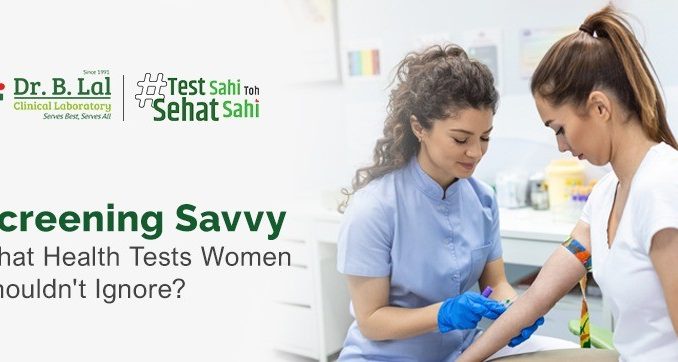
Women’s health screenings are more than just routine appointments—they are vital checkpoints that can significantly influence long-term wellbeing and quality of life. In today’s fast-paced world, where career demands, family responsibilities, and countless daily priorities compete for attention, it’s easy for health screenings to slip down the to-do list. Yet, these screenings are essential tools in early detection and prevention of many conditions that disproportionately affect women. Understanding which screenings are critical and why they matter can empower women to take proactive control of their health journey.
One of the cornerstones of women’s health screenings is the Pap smear, a test that has revolutionized cervical cancer prevention. The importance of this screening cannot be overstated. Cervical cancer, once a leading cause of cancer death among women, has seen dramatic declines thanks to regular Pap testing paired with human papillomavirus (HPV) testing. This combination identifies abnormal cells and high-risk HPV strains long before cancer develops, enabling timely intervention. For women, beginning Pap smears around age 21 and continuing at intervals recommended by their healthcare provider offers a powerful safeguard. For example, a 35-year-old woman who adheres to screening guidelines significantly lowers her risk compared to someone who delays or skips these exams. The key takeaway is that early and consistent screening can transform potential health crises into manageable conditions.
Breast health is another critical area where screenings play a pivotal role. Mammograms, in particular, have become synonymous with breast cancer awareness. While the prospect of screening may cause anxiety, the benefits far outweigh the discomfort or fear. Breast cancer remains one of the most common cancers among women, yet mammograms detect tumors often too small to be felt, allowing treatment to start at the earliest, most treatable stages. A 50-year-old professional juggling work and family life might hesitate to schedule a mammogram due to time constraints, but recognizing it as an investment in her future health is essential. Emerging guidelines emphasize individualized timing, often beginning mammograms at age 40 or 50 depending on personal risk factors. Women with a family history of breast cancer or genetic predispositions may require earlier or more frequent screening, illustrating how personalized health plans can enhance effectiveness.
Beyond these well-known tests, screenings for bone health are increasingly important as women age. Osteoporosis—a condition where bones become fragile and prone to fracture—affects millions of women worldwide, often without symptoms until a fracture occurs. Bone density scans, typically recommended for women over 65 or younger women with risk factors like long-term steroid use or early menopause, provide insight into bone strength. This screening’s value lies in its ability to catch deterioration before serious injury happens. For example, a woman in her early 60s who leads an active lifestyle but has a family history of osteoporosis can benefit greatly from early detection and preventive measures such as dietary changes or medication.
Heart disease, often perceived as a “man’s disease,” is actually the leading cause of death among women globally. Yet, heart health screenings are frequently overlooked or delayed. Blood pressure checks, cholesterol tests, and assessments of lifestyle factors form the basis of cardiovascular screening. These tests, while simple, can reveal hidden risks such as hypertension or high cholesterol that silently damage arteries over time. For a woman in her 40s balancing a demanding career, these screenings might seem routine but are crucial for early intervention. Managing risk factors early—through diet, exercise, or medication—can prevent the progression to serious events like heart attacks or strokes.
Another screening area that deserves attention is diabetes. Women face unique challenges with blood sugar regulation, especially during pregnancy or menopause, making glucose testing important. Gestational diabetes, which develops during pregnancy, not only impacts the mother’s health but can also increase the child’s risk for obesity and type 2 diabetes later in life. Regular blood sugar screenings can detect diabetes or prediabetes, allowing for lifestyle adjustments that reduce complications. A 30-something woman planning to start a family or navigating hormonal changes may find this screening especially relevant. It underscores the idea that women’s health screenings often intersect with various life stages and transitions, requiring ongoing dialogue with healthcare providers.
Mental health, often neglected in traditional screening discussions, is equally critical. Conditions like depression and anxiety affect women at higher rates than men, influencing overall health and productivity. While not a “screening” in the classic sense, routine mental health evaluations during medical visits can uncover symptoms that might otherwise go unnoticed. For instance, a professional woman managing stress at work might downplay emotional struggles until they manifest physically. Encouraging open conversations about mental health as part of regular health check-ins promotes a holistic approach to wellness.
The challenge with health screenings lies not only in awareness but also in access and adherence. Women juggling multiple roles may delay or miss appointments due to time constraints, childcare duties, or even fear of medical procedures. Healthcare providers and workplaces can play a transformative role by fostering environments that prioritize women’s health. Flexible scheduling, health education, and supportive policies contribute to higher screening rates and better outcomes.
In conclusion, women’s health screenings are fundamental pillars supporting a lifetime of wellbeing. From cervical and breast cancer checks to bone health, heart risk assessments, diabetes testing, and mental health evaluations, these screenings offer opportunities for early detection, prevention, and personalized care. Understanding the significance of each and integrating them thoughtfully into one’s health routine can prevent minor concerns from becoming major health challenges. For women navigating complex personal and professional landscapes, these screenings are not just medical appointments—they are strategic investments in a healthier, more empowered future. Prioritizing them is a powerful step toward ensuring that women continue to thrive, both in their personal lives and within the broader spheres of business and community.

Leave a Reply